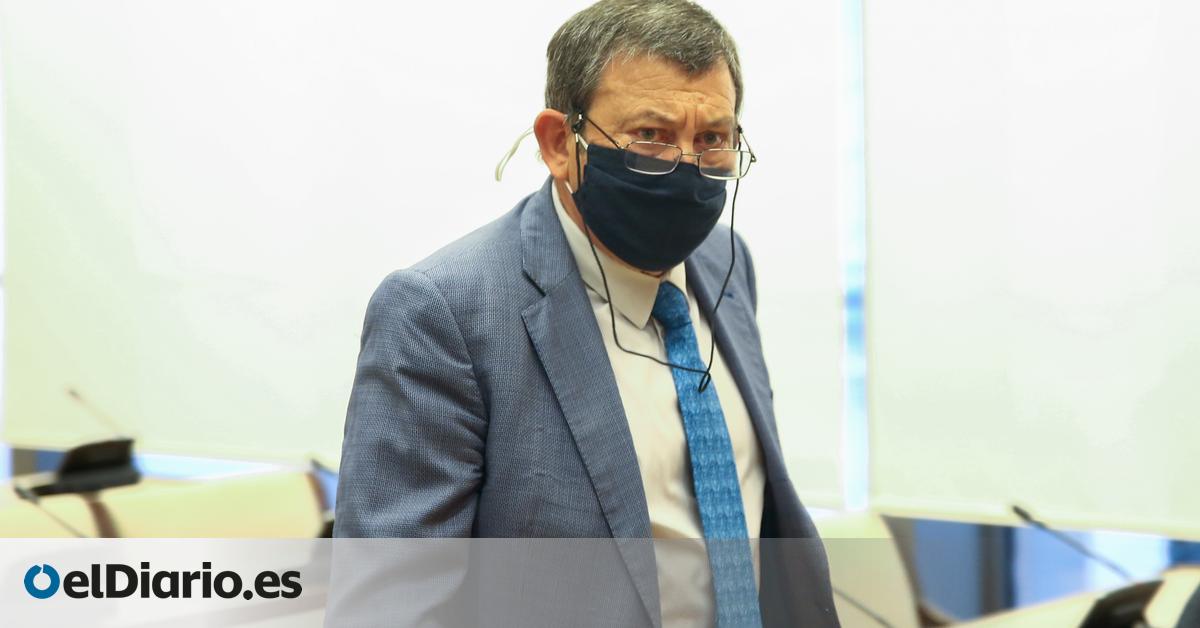
Judge Santiago Pedraz has just expanded the list of accused by the dirty war to Podemos carried out during the last government of the Popular Party. The magistrate of the National Court has cited to declare as investigated on June 6 to the Chief Inspector of the National Police Bonifacio Díaz Sevillano. Already retired, ‘Boni’ was an active member of the Political Brigade that acted in the Ministry of Interior between 2012 and 2016 and its trail also appears in the other two large parapolial maneuvers of the time, the Operation Catalonia and the espionage to Luis Bárcenas with reserved funds.
For the imputation of Díaz Sevillano, the testimony of two high position of Chavismo, Nervis Villalobos and Javier Alvarado Ochoa, both residents in Spain and with open procedures in the National Court has been key. Villalobos described several meetings with Bonifacio Díaz Sevillano in which the Spanish police requested information against Podemos, both in an appointment in New York and later, when it was established in Spain.
Díaz Sevillano came to deliver some “police chips” of members of Podemos to Nervis Villalobos to keep in mind who should collect information and give it to him. The “police chips” of which Villalobos spoke in his statement as a witness against Pedraz were actually an impression of photos and biographies obtained by the police on the Internet. However, when Diaz Sevillano appeared as a witness, he said he never referred to Podemos in his meetings with Nervis Villalobos.
For his part, Javier Alvarado Ochoa was the former Venezuelan position that delivered the alleged “account point” (payment order) of the Chávez government to the CEPS Foundation in 2008, used by the Political Brigade and the related means to try to prove an irregular financing of Pode One of his collaborators, the Chief Inspector Bonifacio Díaz Sevillano.
In the words of the prosecutor of the case, Vicente González Mota, who supports in a brief the imputation of the police, the statements of Venezuelans involve new indications of the “realization of information collection activities outside any procedure for investigation of criminal acts”. The publication of the payment to CEPS in various media on the right was held by another of the accused, the number two of the interior at the time, Francisco Martínez, in the messages that were seized in the course of the Kitchen operation.
On the other hand, and as Recover Podemos in his letter, Díaz Sevillano was one of the police who met with another Venezuelan, Carlos Alberto Arias, to collect documentation that would “certify the existence” of an account in a bank of the Fiscal Paradise of Granada in which Pablo Iglesias would have received more than 270,000 euros from the Government of Caracas. The account never existed and, therefore, neither the payment. Both the elaboration of the bully and its dissemination is one of the lines of investigation that are followed in the court of Pedraz.
The judicial cause of the dirty war
In the instruction of the case for the dirty war against Podemos the prosecutor supports some proceedings requested by the party, which the judge then subscribes, and rejects the majority. It is accredited that before Venezuelan hierarchs seek refuge in Spain, Spanish police traveled abroad to maintain encounters to make residence offers in the country in exchange for information against Podemos. However, the prosecutor opposes and the judge rejects that trips to the United States, Venezuela, Colombia or the Dominican Republic of the accused be investigated.
Until now, they hold the status of investigated in the cause of the dirty war to Podemos, the aforementioned Francisco Martínez, the police officers Eugenio Pino, José Ángel Fuentes Gago and Andrés Gómez Gordo, and since last May 12, the date on which the Pedraz providence dictated, Bonifacio Díaz Sevillano joins.
Only Diaz Sevillano’s destinies explain how he could be involved in the dirty war. It was the Interior aggregate in Andorra during Operation Catalonia and was then destined in the cabinet of the Operational Deputy Director, Eugenio Pino, architect of the Political Brigade. As a reward then it was destined to Mexico, with a monthly net salary of more than 11,000 euros. Díaz Sevillano was tried by the case of the Pujol pendrive, but was acquitted. Recently, the Supreme Court has confirmed the condemnation of secrets of secrets to its former boss, Commissioner Pino.
Source: www.eldiario.es

